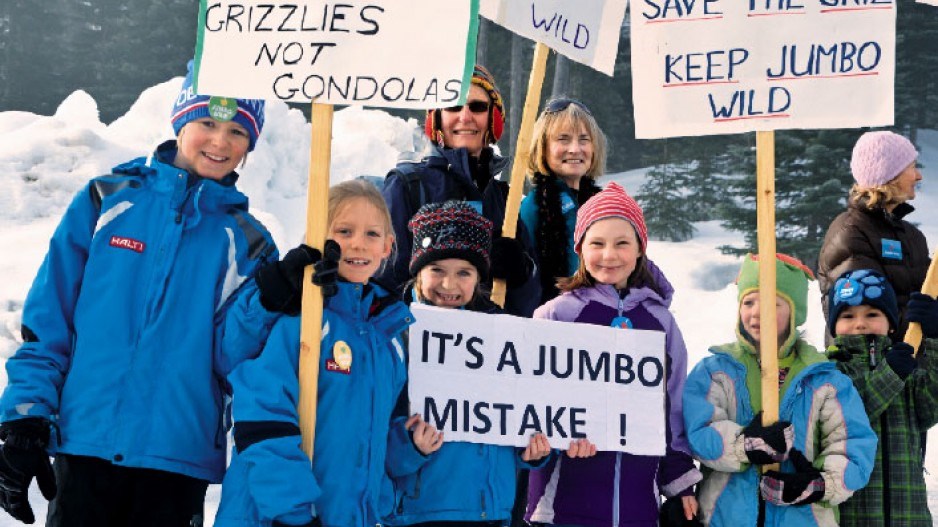First Nation opponents of the $900 million Jumbo Glacier ski resort in the Kootenays have an uphill battle to stop what would be B.C.’s only year-round ski resort.
Ktunaxa Nation Council chairwoman Kathryn Teneese threatened court action after the B.C. government granted Glacier Resorts Ltd. a permit on March 20 to build a destination that is projected to create 750 permanent jobs on traditional Ktunaxa land.
But lawyers who specialize in aboriginal law say the Ktunaxa have their work cut out for them if they hope to secure a court injunction to stop work or kill the project, which was first proposed 21 years ago.
“It’s rare that a court will grant an injunction to support a complaint that there was inadequate consultation,” said Geoff Plant, a partner with Heenan Blaikie LLP and a former B.C. attorney general and the minister responsible for treaty negotiations from 2001 to 2005.
“If you’ve got a case where there’s a lot more work that would have to be done before anything actually happens on the ground, then an injunction is very unlikely.”
That’s the situation at Jumbo. Glacier vice-president Grant Costello told BIV that he doesn’t expect any brush to be cleared to make way for the project until mid-2013 at the earliest.
He said the company’s environmental certificate has 195 conditions, some of which are preconstruction requirements.
“Before we build roads, we have to do archeological studies. Most of the commitments we have made [as part of getting the environmental certificate] are around First Nations interests. We will also conduct wildlife studies.”
Because of the region’s climate, Glacier must conduct archeological and other studies in a short summer window starting in June if the company is to start building roads the following summer.
“The concern we have is that any permanent structures at that location will forever change the area and the landscape,” Teneese told BIV.
She contends that although her people have had temporary structures on the site for centuries, no permanent settlement has ever been built there.
Teneese added that the area for the proposed resort is of significant cultural and spiritual importance to the Ktunaxa. She also hinted that her people will argue that all consultation was with the Ministry of Forests, Lands and Natural Resource Operations’ resort development branch.
“Their job is to make resorts happen,” she said. “It wasn’t us talking to somebody who doesn’t have a vested interest.”
Plant said legal precedent compels the B.C. government to consult First Nations that might be adversely affected by actions authorized under a permit and to take all concerns seriously.
“If the Crown fails to meet that obligation, then the permit can be set aside,” he said.
In the case of Jumbo, Victoria reached an agreement with the Ktunaxa Nation Council in 2010 to give the council $1.65 million over three years to consult more effectively about land and resource development decisions in Ktunaxa territory.
Plant said exactly how much consultation the province owes the Ktunaxa depends on two factors: the strength of the Ktunaxa’s claim to the area and the project’s impact on the area.
“[But] there is no hard and fast rule about how much consultation is enough.”
Costello hinted that the Ktunaxa are hypocritical in their claim that the resort will affect grizzly bear habitat because the band operates an outfitting business for hunters not far from the proposed Jumbo ski resort site. He added that the Ktunaxa don’t want to have large private developments on their ancestral land before their land claim is settled.
But Teneese said her band’s outfitting operation is 35 kilometres away from the Jumbo site. “It’s not the same thing.”
She added that her nation’s first priority now that Jumbo has been approved is to map out a strategy with other opponents of the project.
Might that include blocking roads?
“We could. We haven’t made that determination,” she said. “Unless we were prepared to be doing that for the rest of our lives, there’s not a lot of likelihood that it would be a way to resolve the issue. It’s a way to attract attention, but it’s not a resolution.” •




